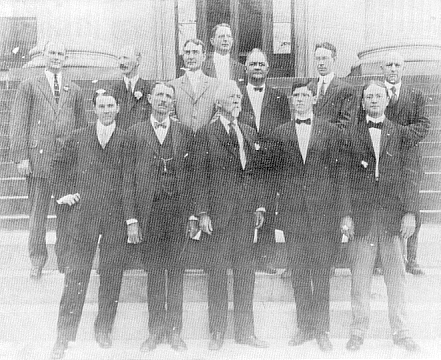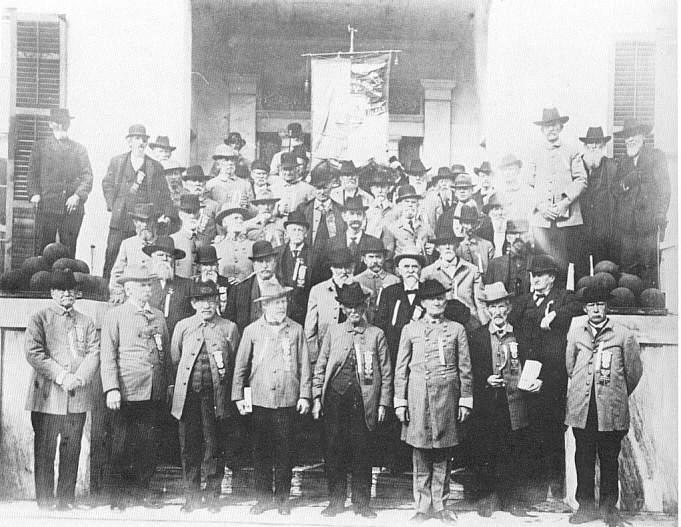Democrat leaders made plans immediately to prevent African Americans from voting. As noted early, many blacks had been intimidated by the atmosphere of violence and threats from running for office and, in fact, most blacks had stayed home on election day (though some had bravely gone to the polls). But in 1899, George Roundtree, one of the white supremacist leaders who was elected to the State Legislature, proposed the infamous "Grandfather Clause" amendment to the state constitution as a condition for voting--only those North Carolinians would be exempted from the new literacy requirement whose grandfather had voted (i.e. who had voted prior to the Civil War) would be permitted to vote. This amendment was approved by the voters by a majority of 54% in an election marked by apparent fraud in August, 1900. (In New Hanover County, for example, there were 2,996 votes for the amendment, only 3 against it. Similar improbable disparities existed in other eastern North Carolina voting districts.) The new voting requirements marked the end of black franchise until the 1950's in North Carolina.

Aldermen of the City of Wilmington, 1909
Thus the great experiment in civil rights in North Carolina, which had begun with the end of the Civil War, came to an end. Black freedom, which had flourished economically and politically in the post-war years, particularly in Wilmington in the 1890's, was crushed, and blacks were everywhere in the South put and held in a lower caste. White supremacy was triumphant, and the "slavemasters" had reasserted themselves.

Confederate Veterans, 1900
return to Table of Contents
Link to 5.3:
ECONOMIC OPPRESSION